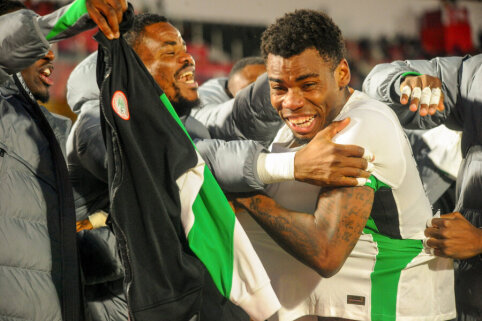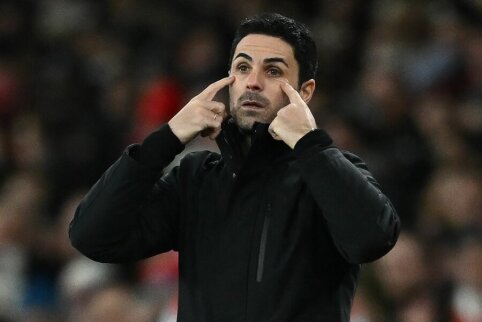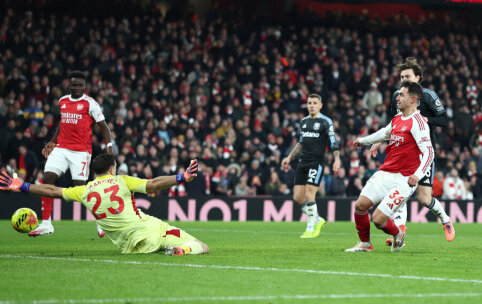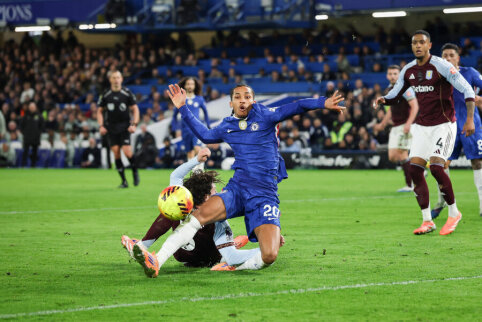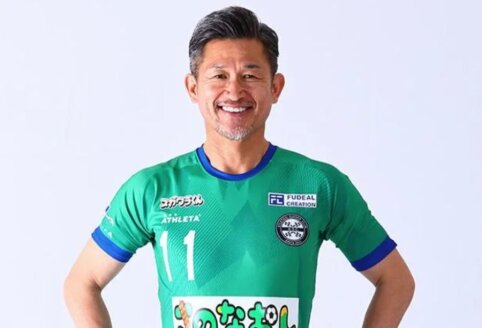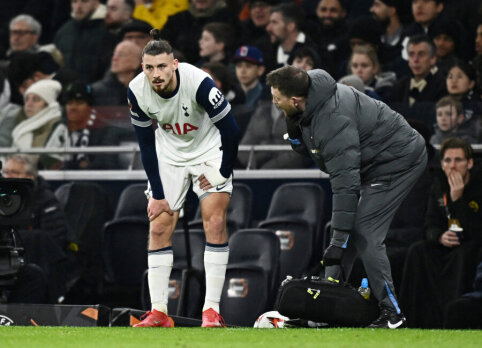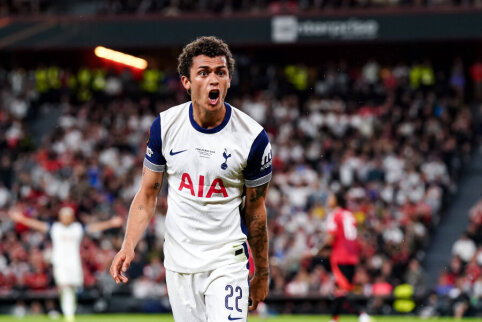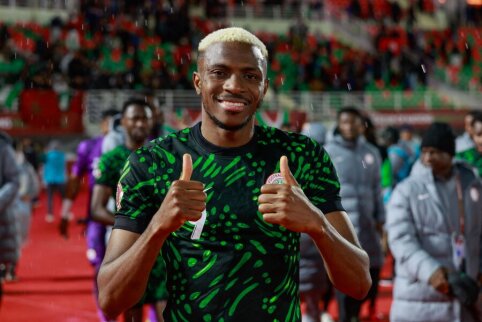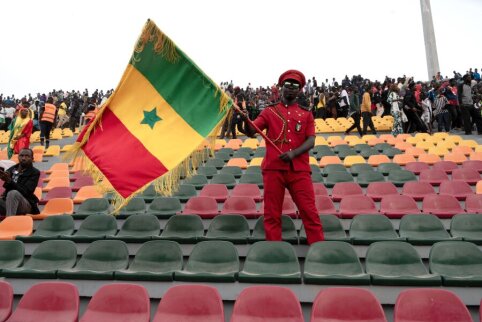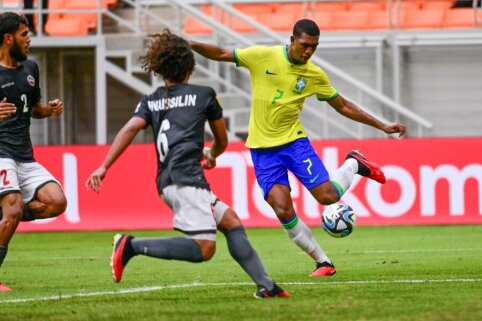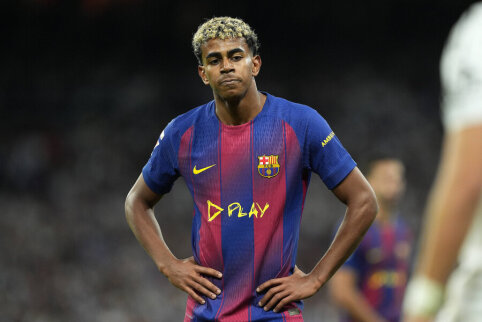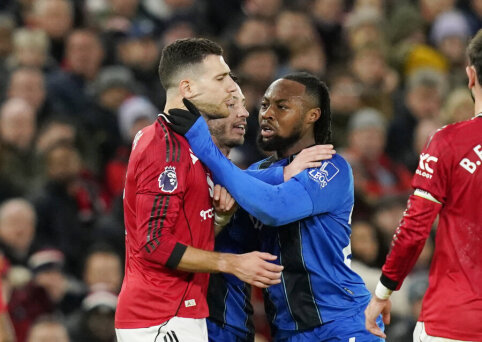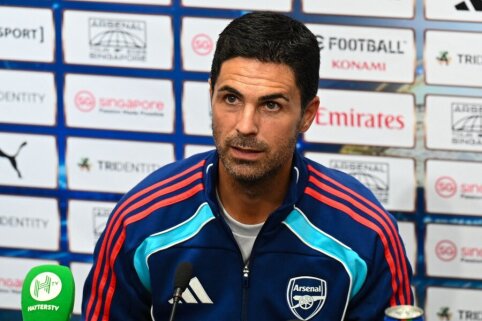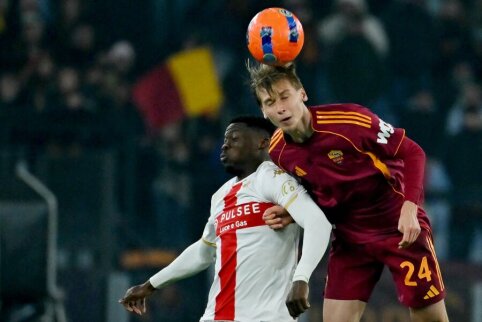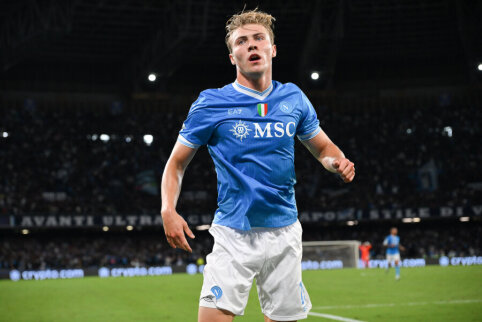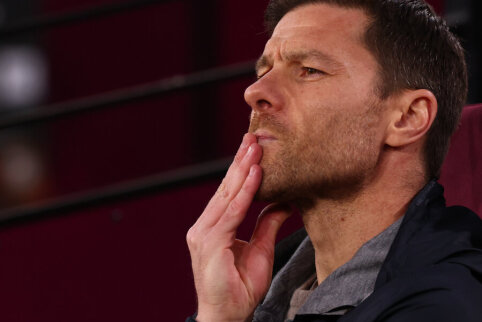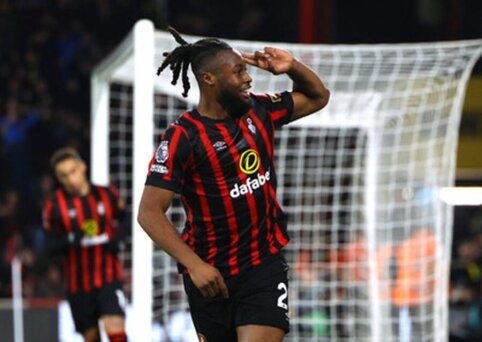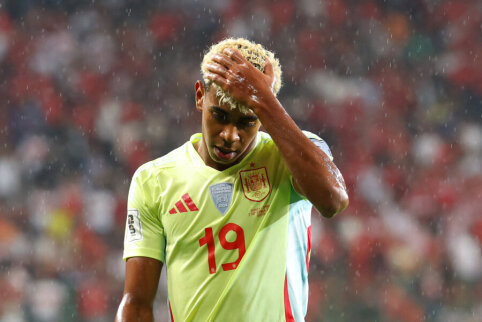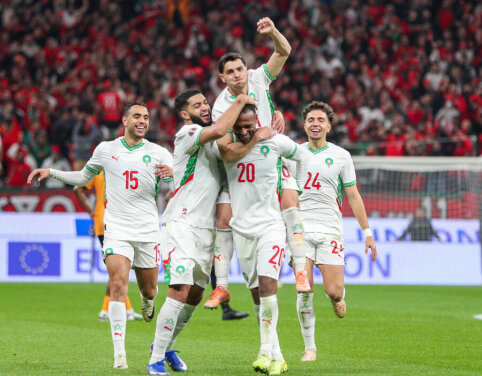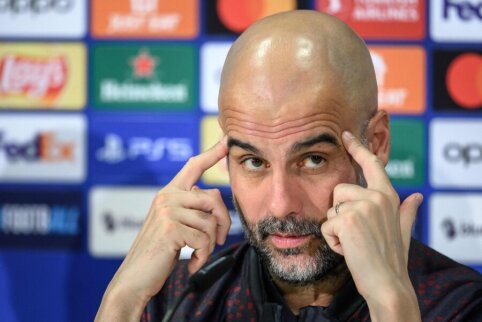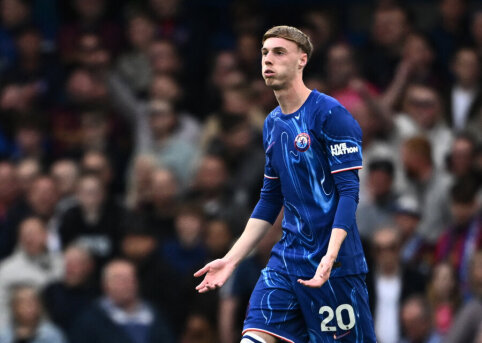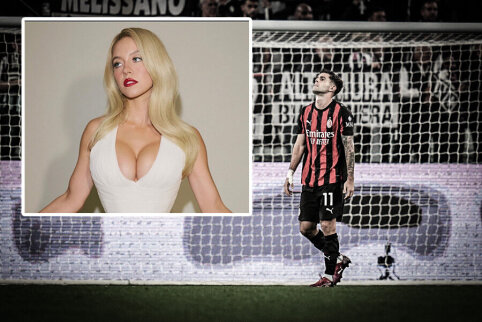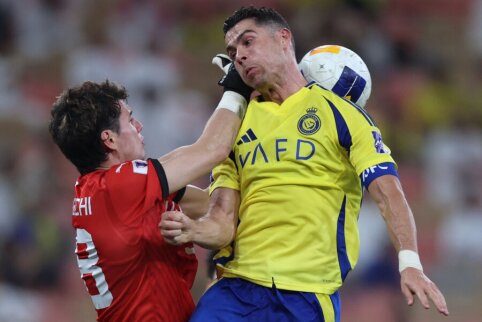 © EuroFootball.com
© EuroFootball.com
Before the weekend's upcoming Liverpool derby, visitor to the "Tribūna" section of the website Tadas suggests an article about the history of matches between the two teams of this city and the most memorable episodes.
It's probably not worth asking either the supporters of the "Reds" or the "Blues" what the city derby means to them. It is one of the most famous not only in England, but also in Europe. This Saturday, the uncompromising neighbors will meet for the 203rd time. The first match between the two teams took place on October 13, 1894, at Goodison Park stadium, with "Everton" celebrating a 3-0 victory. Every meeting between these teams is more than a game, like every majestic derby having its own flavor and permanence.
Actually, it was "Everton" that contributed the most to the emergence of "Liverpool". In 1892, the owner of "Anfield" raised the stadium's rental fee, forcing the "blues" to change their green pitch. The remaining club chairman, J. Houlding, decided to establish a new club, naming it after his hometown - "Liverpool".
Over the 111-year history of the derby, true football masterpieces happened. For example, in 1989, the FA Cup final at Wembley Stadium. Three years prior, the teams had already determined the winner of the cup at the same stadium, with I. Rush's "brace" allowing the trophies to be taken home by the "Liverpool" team - 3-1. The "Everton" club was burning with desire for revenge, but they conceded a goal just 4 minutes into the match.
The forward of the Irish national team, J. Aldridge, made a mark. However, the "blues" managed to equalize, earning extra time. Here, again, I. Rush had his say, replacing J. Aldridge in the 72nd minute. He scored twice against the "Everton" goal, determining the fate of the cup. True, the "blues" managed to soften the result, but it didn't change the essence. It could be remembered how in November 1982, the same I. Rush scored a "poker," and the "reds" won 5-0.
By the end of 1970, "Everton" arrived at "Anfield" as the country's champion. They clearly proved their supremacy in the previous season - winning both matches with a total result of 5-0. At that time, the "reds" were experiencing a change of eras and could once again fall victim to the blows by the "blues". In the second half, "Everton" broke through their neighbors' defense and sent them toppling - goals were scored by J. Royle and A. Whittle. With 25 minutes left until the end of the match, the "reds" pushed "Everton" towards their goal, relentlessly launching attacks. S. Heighway reduced the result, and in the 76th minute, J. Toshack, appearing the second time on the field in "Liverpool" shirt, equalized the score. The decisive goal in these dramatic matches was scored by the hosts' defender Ch. Lawler.
And how about the never-tiring veteran G. McAllister's "candy" served on April 16, 2001, at Goodison Park? That year, "Liverpool" won the League, FA, UEFA cups, then narrowly followed the championship leader "Arsenal." However, "Everton" lacked much motivation unless we consider these as the principle derby matches. E. Heskey's early goal was answered before the break by D. Ferguson.
After the break, M. Babel scored the second goal for the "reds," and a little later R. Fowler "knocked" from the penalty spot. Shortly after, "Liverpool" player I. Biscan was expelled from the field. "Everton" capitalized on their chance - D. Unsworth set the score level at 2-2. And so, extra time was coming to an end, with a penalty 40m away from the center of "Everton" goal. Taking the shot from 37 years old G. McAllister, the ball found the back of the net in an incredible trajectory - 3-2!
However, the most famous Liverpool derby is considered the 1991 match when the teams met in the FA Cup quarterfinals. The first match at "Anfield" ended in a draw. According to the tournament rules, additional matches were scheduled, which took place three days later at Goodison Park. Both teams had many top-class players. "Liverpool" dominated throughout, but the "blues" always found strength to equalize the score.
The goalkeepers performed miracles, and if not for the sturdy N. Southall and the former paratrooper with inexhaustible "clown talent" semi-Zimbabwean B. Grobbelaar, who is worthy of a separate book, the final score on the scoreboard would have been much higher. Attacks were following one another from the first minutes, and it was getting more and more difficult for the defensive lines.
Within the first half-hour, the advantage of the "reds" was gradually emerging - I. Rush broke through one-on-one and passed the ball over N. Southall, but the "blues" defender A. Hinchcliffe cleared from the empty goal... straight to I. Rush, assisted by P. Beardsley, leaving the latter with only an open net. By halftime, "Liverpool" could have increased their lead several times, but the opponents were saved by the goalkeeper and defenders. N. Southall also dealt with several P. Beardsley attacks and at the end of the first half, nicely parried a shot by J. Barnes.
After the break, "Everton," following the advice of their coach H. Kendall, quickly equalized the score. G. Sharp scored, heading in a British style past S. Staunton into the closest corner of the goal. After the goal, the hosts attacked more zealously, but with 20 minutes left until the end of the main match time, P. Beardsley dribbled past two defenders and accurately shot into the far corner from 17 meters.
"Everton" did not give up - after 6 minutes, taking advantage of a mistake by B. Grobbelaar, they once again leveled the score (G. Sharp already scored into an open goal). 2-2 and "blues" fans invaded the field... However, shortly after, the "Liverpool" goalkeeper repelled a deceptive shot by P. Nevin. In the counter-attack, S. Staunton passed the ball to J. Barnes on the left side, the latter demonstrated excellent technique "dribbling" three opponents, but once again, N. Southall saved redirecting the ball into a corner.
"Liverpool" defender S. Nicol struck into the penalty area, where I. Rush jumped as if on a springboard, and scored a third goal from ground level. There were still 6 minutes until the end of the match, "Everton" had the whole team attacking to level the score and push for extra time. A hero emerged immediately after I. Rush's goal, T. Cottee - 3-3!
During the extra time, the teams intensified even more, and "Liverpool" once again surged forward when J. Barnes, receiving the ball on his left side, bypassed two defenders and sent the ball into the top corner of the goal with a splendid shot! After such "unseen forces" help, it seemed that "Liverpool" would maintain their advantage until the end of extra time, but in the 116th minute, the "reds" defenders gifted the ball to T. Cottee, who cold-bloodedly outplayed the goalkeeper. 4-4!
Two days later, the senior "Liverpool" coach K. Dalglish, who had been the team's leader from 1977 to 1985 and probably the best player in the club's history, resigned from his position. His comment: "After such an evening, there is nothing more for me to do in football"! The news affected everyone like an "electric shock," because during less than 6 years under K. Dalglish's leadership, "Liverpool" became the country's champion three times and won the FA Cup twice. Everyone tried to persuade K. Dalglish, but he did not change his decision, even though the team was leading in the championship...
However, in the second additional match, "Everton" eventually won at their home - 1-0. After that, both clubs somewhat "forgot" their ambitions for the highest positions in the championship. The city derby somewhat lost its former spirit. For the "Liverpool" team, victory against "Manchester United" became more important, while "Everton" mainly had to think about maintaining their place in the Premier League. Fans became less aggressive towards each other, although they did not become friends. From childhood, a "blue" fan would take his son to "Goodison Park" so that the offspring, God forbid, would not start rooting for "Liverpool".
However, there is one example when the supporters of both clubs could live one day in peace and mutual understanding. In April 1989, at Hillsborough Stadium, the most painful sports tragedy in England's history occurred, where 96 "Liverpool" club fans died in a crush. To honor the victims of the tragedy, a chain was laid out from red and blue scarves, from "Anfield" to "Goodison Park." And in the FA Cup final a month later, fans of both clubs together sang the famous "You'll Never Walk Alone" anthem of "Liverpool."
